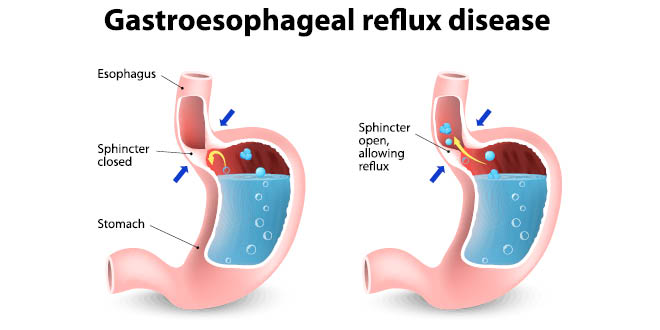Bad breath, medically known as halitosis, is a common issue that affects people of all ages. While it’s often thought to be simply a matter of poor oral hygiene, bad breath can actually be linked to a variety of underlying health conditions, including digestive health. In this article, we’ll explore the connection between digestive health and bad breath, including common causes and remedies, with a particular focus on bad breath in seniors and children.
What Causes Bad Breath?
Bad breath can originate from a variety of sources, but the most common cause is the breakdown of food particles by bacteria in the mouth. Other causes of bad breath may include poor oral hygiene, dental issues, and certain health conditions. For instance, when you eat food, bacteria in the mouth break it down, which can create foul-smelling compounds. This is why brushing and flossing regularly are essential.
However, the link between bad breath and digestive health is often overlooked. Your digestive system, including the stomach and intestines, can significantly impact the smell of your breath. Conditions such as acid reflux, gastrointestinal infections, and even imbalances in gut bacteria can contribute to bad breath.
Bad Breath in Seniors
As people age, they may experience changes in their body that can contribute to bad breath. In seniors, the following factors are often linked to halitosis:
- Age-related changes: One of the most common causes of bad breath in older adults is reduced saliva production. As people age, the salivary glands can become less efficient at producing saliva, leading to dry mouth (xerostomia). Saliva plays an important role in cleansing the mouth and neutralizing acids, so a lack of it can cause bad breath.
- Health conditions: Seniors are more likely to suffer from conditions like diabetes, GERD (gastroesophageal reflux disease), and periodontal disease, all of which are known to cause bad breath. For example, uncontrolled diabetes can lead to a condition known as “diabetic ketoacidosis,” which produces a fruity odor on the breath. Similarly, acid reflux can cause stomach acid to travel up into the mouth, leading to a sour or bitter taste and bad breath.
- Medication side effects: Older adults often take medications for chronic conditions, and many medications can cause dry mouth or alter the digestive process, contributing to halitosis. Medications like antihistamines, painkillers, and antidepressants are common culprits.
Seniors can manage bad breath by maintaining proper oral hygiene, staying hydrated, and managing chronic health conditions. Regular visits to a dentist or doctor are essential to detect any underlying health issues that might contribute to bad breath.
Bad Breath in Children
Bad breath is also a common issue in children, but the causes can differ significantly from those seen in adults. Common causes of bad breath in children include:
- Poor oral hygiene: Just like adults, children can suffer from bad breath if they don’t brush and floss properly. Food particles left in the mouth can cause bacteria to grow, resulting in a bad odor. Teaching children to maintain good oral hygiene is essential.
- Allergies and colds: Children are more likely to suffer from colds, flu, and allergies that can contribute to bad breath. Post-nasal drip (mucus draining down the back of the throat) can lead to a foul smell, especially during allergy season.
- Respiratory infections: Bad breath can also be a sign of respiratory infections such as tonsillitis or sinus infections. These conditions can cause bacteria to accumulate in the throat, leading to bad breath.
- Health issues: In some cases, bad breath in children may signal an underlying health issue such as acid reflux, gastrointestinal disorders, or even diabetes. It’s important for parents to monitor their child’s breath and consult with a pediatrician if the problem persists.
If bad breath in children is due to an underlying health condition, it’s essential to address that first. A pediatrician can recommend treatments or refer to a specialist if necessary.
How Digestive Health Affects Bad Breath
Your digestive system plays a key role in the way your breath smells. Poor digestion can lead to the release of volatile sulfur compounds (VSCs), which are often responsible for foul-smelling breath. Some common digestive issues that contribute to bad breath include:

- Gastroesophageal reflux disease (GERD): GERD is a condition in which stomach acid flows backward into the esophagus, sometimes reaching the mouth. This acid can produce a sour taste and cause bad breath.
- Gastric issues and infections: Conditions like gastritis, peptic ulcers, and small intestinal bacterial overgrowth (SIBO) can lead to excess gas, bloating, and bad breath. The imbalance of bacteria in the gut can release gases that result in unpleasant odors.
- Digestive imbalances: An imbalance of gut bacteria, often referred to as dysbiosis, can impact digestive health and contribute to bad breath. A healthy gut flora is essential for good digestion and preventing the production of foul-smelling gases.
Maintaining a healthy digestive system is key to preventing bad breath. This can be achieved through a balanced diet, regular exercise, and staying hydrated. Probiotic-rich foods, such as yogurt and fermented vegetables, can help maintain a healthy gut balance.
How to Improve Digestive Health and Prevent Bad Breath
To prevent bad breath caused by digestive issues, it’s important to focus on improving overall digestive health. Here are some tips to get started:
- Eat a balanced diet: Include fiber-rich foods like fruits, vegetables, and whole grains to support digestion and reduce the risk of constipation, which can contribute to bad breath. Avoiding too much sugar and processed foods can also help reduce the growth of harmful bacteria in the mouth and gut.
- Stay hydrated: Drinking plenty of water helps promote saliva production and prevents dry mouth, a common cause of bad breath. Hydration also aids digestion and helps flush out toxins.
- Manage acid reflux: If you have GERD or acid reflux, it’s important to manage it through diet and medication. Avoid acidic or spicy foods, which can trigger reflux, and consider eating smaller meals throughout the day.
- Take probiotics: Probiotics support a healthy balance of bacteria in the gut. Adding probiotic-rich foods to your diet, or taking supplements, may help improve digestive health and reduce bad breath.
- Maintain good oral hygiene: Brushing and flossing regularly removes food particles and bacteria from the mouth, helping to prevent bad breath. Using mouthwash or chewing sugar-free gum can help freshen your breath throughout the day.
- Visit your doctor or dentist: If bad breath persists despite good hygiene and digestive health practices, it’s important to consult with a healthcare professional to rule out underlying conditions.
Conclusion
Bad breath can be more than just an inconvenience—it can be a sign of underlying health issues, particularly digestive health problems. By understanding the connection between bad breath and digestive health, and considering the specific causes in seniors and children, you can take proactive steps to improve your oral and digestive hygiene.
Whether it’s managing conditions like GERD, improving gut health, or maintaining a good oral hygiene routine, taking care of your digestive health can help you maintain fresh breath and overall well-being. Regular check-ups with your healthcare provider are essential to detect any issues early and ensure that your digestive health is on track.



